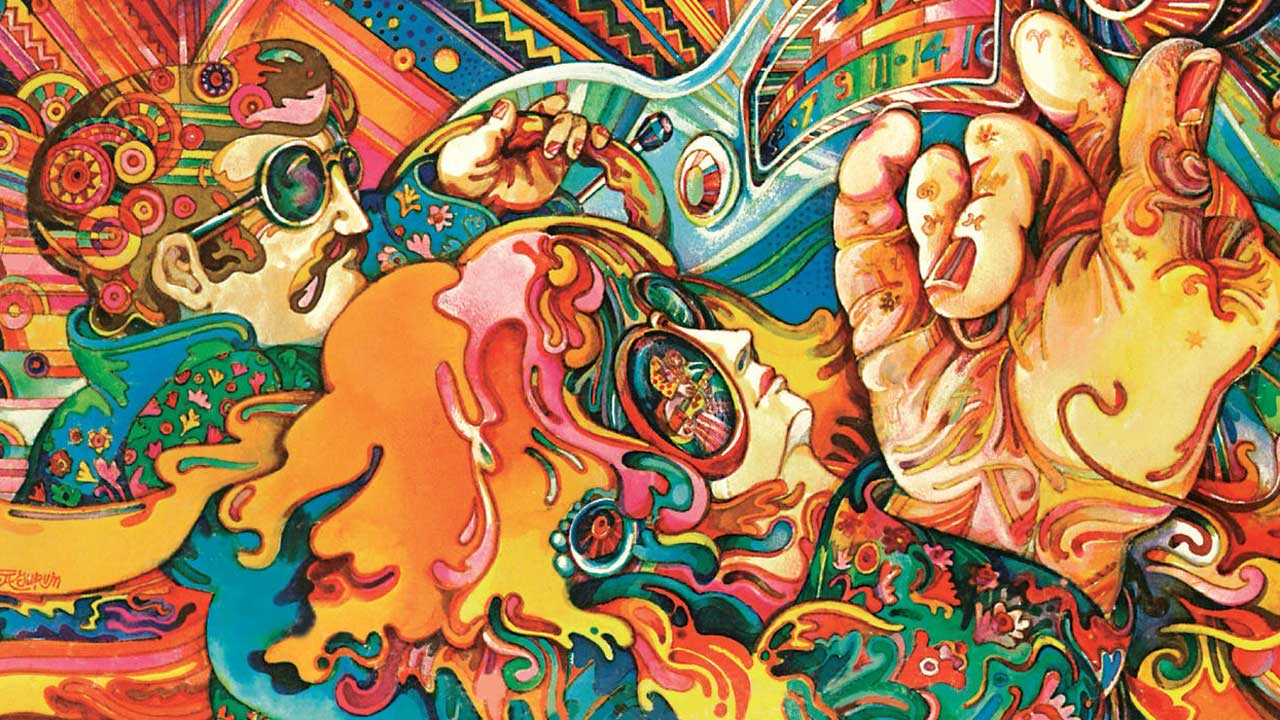Damon Johnson: How I joined my favourite band
How did a Thin Lizzy obsessive from Alabama end up playing alongside his heroes? Black Star Riders guitarist Damon Johnson reflects on his fantastical career trajectory…
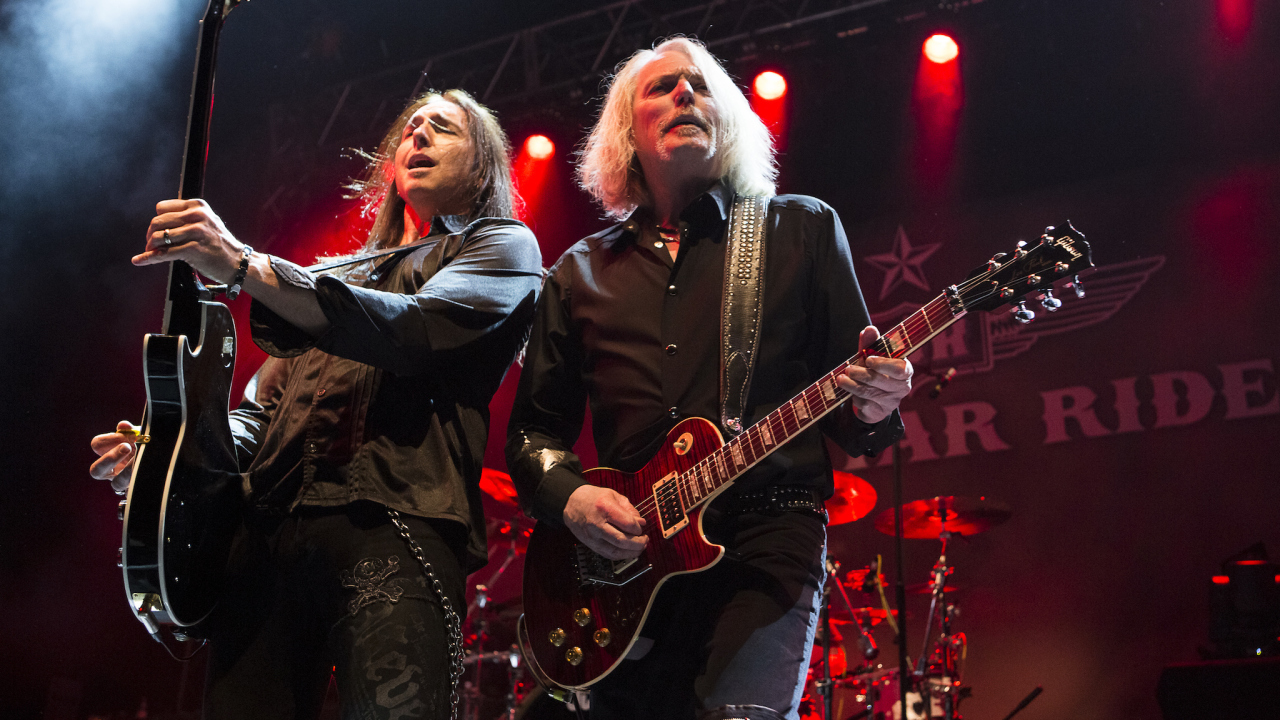
Select the newsletters you’d like to receive. Then, add your email to sign up.
You are now subscribed
Your newsletter sign-up was successful
Want to add more newsletters?

Every Friday
Louder
Louder’s weekly newsletter is jam-packed with the team’s personal highlights from the last seven days, including features, breaking news, reviews and tons of juicy exclusives from the world of alternative music.

Every Friday
Classic Rock
The Classic Rock newsletter is an essential read for the discerning rock fan. Every week we bring you the news, reviews and the very best features and interviews from our extensive archive. Written by rock fans for rock fans.

Every Friday
Metal Hammer
For the last four decades Metal Hammer has been the world’s greatest metal magazine. Created by metalheads for metalheads, ‘Hammer takes you behind the scenes, closer to the action, and nearer to the bands that you love the most.

Every Friday
Prog
The Prog newsletter brings you the very best of Prog Magazine and our website, every Friday. We'll deliver you the very latest news from the Prog universe, informative features and archive material from Prog’s impressive vault.
It’s the quintessential schoolboy fantasy. The band stops playing. The spotlight scans the crowd. The singer beckons the daydreamer onto the stage and bestows an electric guitar. Needless to say, this shit doesn’t happen in real life. So perhaps it’s no wonder that during an interview with Damon Johnson, you sense the 50-year-old guitarist still half-expects to snap awake in an Alabama classroom, Thin Lizzy fanzine concealed within his textbook, drool on the desk.
A Lizzy obsessive since the epiphany of a hometown show in 1979, Johnson learnt his craft from the Dublin band’s oeuvre, and though his career pinballed from ’90s nearlymen Brother Cane to a sideman role with Alice Cooper, in 2011, his ferocious chops and friendship with Scott Gorham made him the obvious choice for the late-period lineup. “There’s a lot of cosmic alignment of the planets in my story,” considers Johnson, now Gorham’s wingman in Lizzy splinter-group Black Star Riders. “It’s the stuff of great fiction…”
To take you right back, how did you fall for Thin Lizzy?
“I saw Thin Lizzy live, in my home state of Alabama, when I was 15 years old. This was back in 1979. I’d gone with my school friends to see Ted Nugent. We didn’t find out the opening act until we got to this arena. I wasn’t familiar with Thin Lizzy. It was just, like, ‘Oh, that’s the band with that song, The Boys Are Back In Town’. But they came out and changed my life. They opened with Jailbreak, with the sirens and smoke, and I remember being initially blown away with Phil Lynott. I’d never seen a real rock star before. He jumped on the riser with that bass with the mirrored pickguard, shining it on girls in the audience. My mates and I were floored. It was probably the way people recollect seeing Hendrix. Then I realised that Scott Gorham was over to his left. Y’know, this white guy with long hair and this white outfit. I was just, like, ‘Man, I want to look like that. And I want to play like that…’”
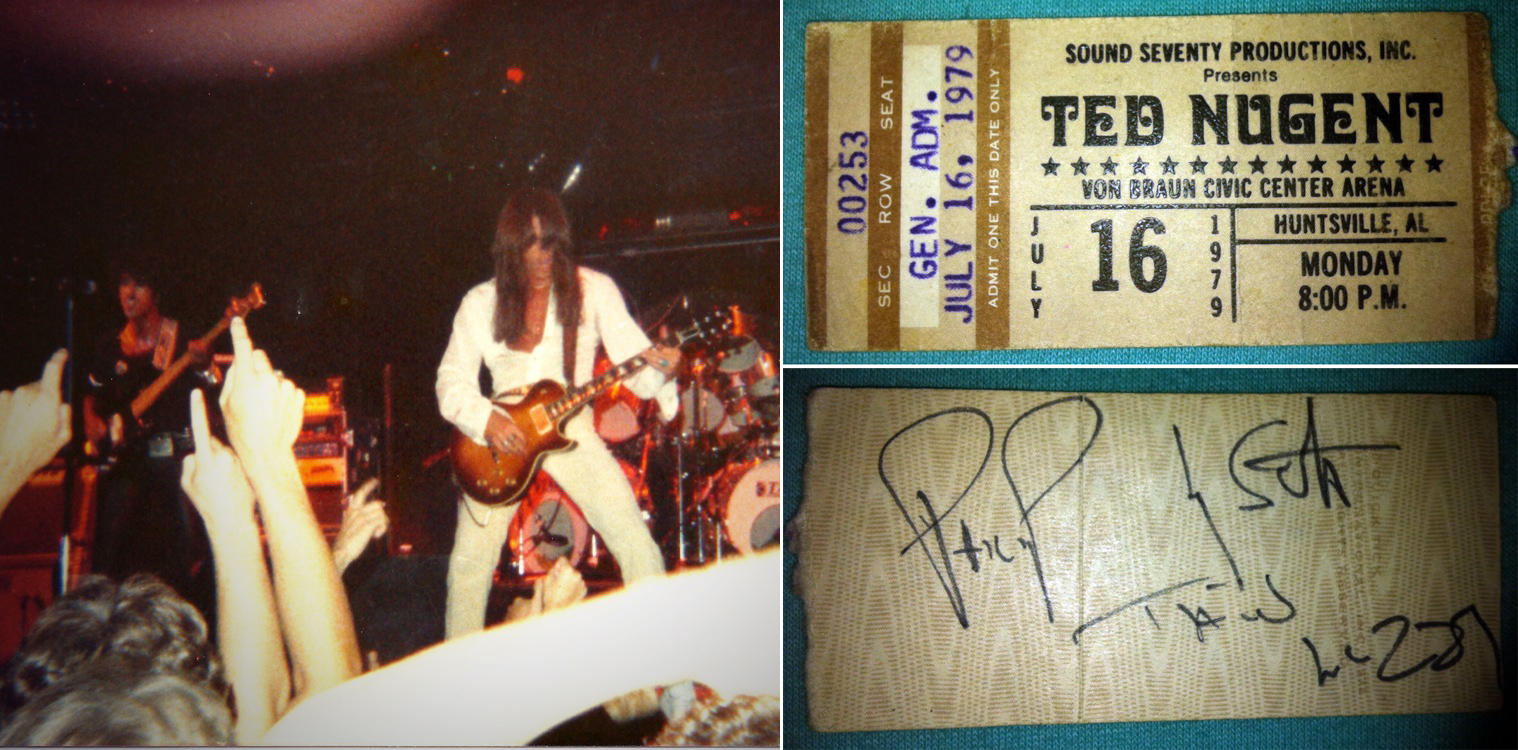
Left: a photo of Thin Lizzy onstage in Huntsville taken by Damon. Right: Damon’s original ticket stub, signed by Phil Lynott and Scott Gorham.
How did your obsession grow from there?
“I went out the next week and bought four Lizzy albums: Johnny The Fox, Bad Reputation, Live And Dangerous and Black Rose. And I would argue those four albums are all any young musician needs, to learn everything about songwriting, great lyrics, powerful riffs. Thin Lizzy was different. They were the first band that really had some punk-rock energy. I’ve always said that my love of Thin Lizzy helped guide me through some of the other musical bullshit that came out around that time. I think the discovery for me was that there was a lot of common ground, musically, between Thin Lizzy and the other Southern bands I was so immersed in at the time, like Lynyrd Skynyrd, the Allman Brothers and Marshall Tucker. Lots of melodic guitar parts that were almost like songs within the songs. In 1989, I had a covers band called Chinatown, and we worked up this medley: Chinatown, Cowboy Song, Boys Are Back. I just remember all these girls starting coming to the show…”
Sign up below to get the latest from Classic Rock, plus exclusive special offers, direct to your inbox!
You were playing with Alice Cooper when you first met Scott?
“Yeah, the three of us played golf together in 2006. An amazing day. Scott’s buddy, the actor Dougray Scott, pretty much striped everyone. I played like shit, man. I was kinda nervous, more focused on talking to Scott about Johnny The Fox than hitting the golf ball. I figured it’d just be a great story to tell. But then, when we crossed paths again four years later [when Lizzy, Alice and Def Leppard shared a bill], they were looking for someone to come in. The timing was pretty amazing. If fate hadn’t brought that concert together, I probably wouldn’t be here right now. Because I was just fresh on everyone’s mind.”
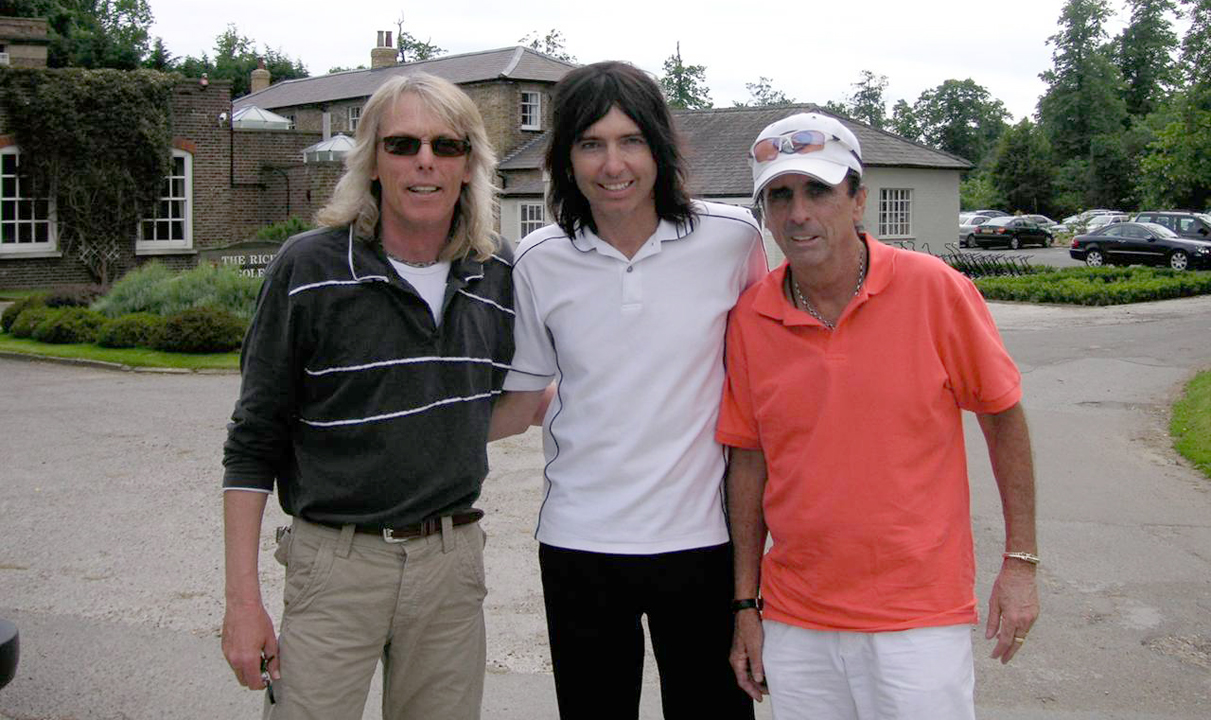
_June 4, 2006: Scott Gorham and Damon Johnson meet for the first time, playing golf with Alice Cooper in south west London. _
How did the offer to join Lizzy materialise?
“A friend in the Alice Cooper band had mentioned me to their management: ‘Hey you should get Damon, because he knows the Lizzy catalogue better than anyone’. Two weeks later, I get a call from their manager to say my name was on the shortlist. But initially, because of my prior obligations, I declined. I didn’t want to leave Alice in a quandary. It was my wife who talked sense into me. Like, ‘If you don’t take this opportunity, you’re gonna regret it for the rest of your life’. So that was it, man.”
Can you describe your emotional state the first time you played alongside Scott?
“Well, I had to kinda calm myself, and try not to be like a little schoolgirl at the prom. Scott was smart enough to get together one-on-one at the hotel before we came into full rehearsal, and we walked through some of the parts. The greatest fulfilment for me was when I had the first rehearsal with the guys. To have Scott and Brian Downey come over individually and say, ‘Hey mate, you’re playing these songs the way they were meant to be played’… that was pretty exciting.”
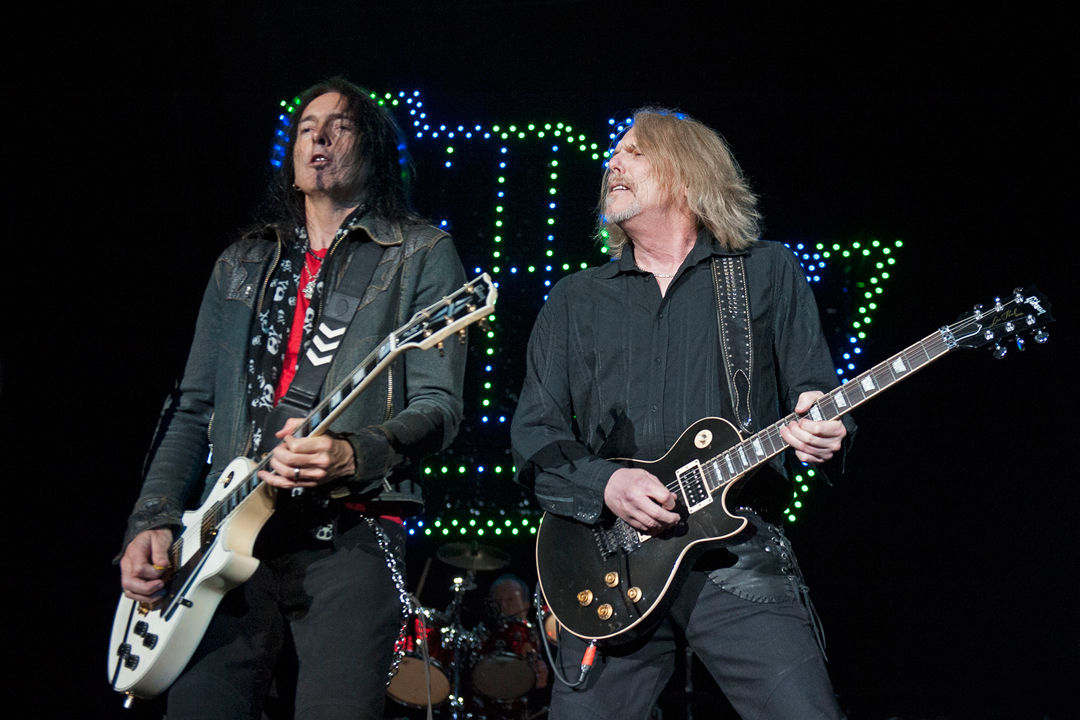
Damon and Scott onstage with Thin Lizzy supporting Guns N’ Roses at the O2 Arena, London, in May 2012.
How did you feel about the transition from Lizzy to Black Star Riders?
“I knew it was the right thing to do. We’d already written the bulk of the songs that made up the debut [BSR] album, so we knew we had some good material. But I must also be honest and tell you that when management and Ricky [Warwick] called and said, ‘Look, we’re gonna start a new band’, my initial reaction was, ‘Guys, I’m not gonna start a new band. I’ve done it too many times. It’s just too hard, especially in the twentieth century’. It was Scott and Ricky that convinced me. They said, ‘Look, let’s give it a shot. Let’s put out one record and see what happens…’”
Did you think it was right to drop the Lizzy name?
“Oh, no question about it. If I wasn’t part of the band, and I was just back home in the United States and you told me, ‘Hey, Thin Lizzy is gonna put out another album without Phil Lynott’, I wouldn’t have wanted to know. I wouldn’t have cared. It’s like, man, there is no Thin Lizzy without Phil Lynott. I knew we had good songs. We had Kingdom Of The Lost, Bound For Glory, Bloodshot, Hey Judas, Hoodoo Voodoo… it definitely felt better, spiritually, to release those songs under a different name.”
How does it feel to walk onstage and perform those classic Lizzy songs?
“I still love playing those songs. And, trust me, I still have moments when we’re in the middle of The Boys Are Back In Town, and I’ll look across the stage, and there’s my hero – and now he’s my bandmate, and we write songs together, and we have debates about the setlist. I loved Thin Lizzy so much – it was part of my DNA. Now, you can pull up Thin Lizzy on Wikipedia, and my name is on there as ‘in the band’. I’m incredibly honoured by that and it’s still very exciting.”
It’s the sort of thing that schoolboys dream about, isn’t it?
“Well, it is very fantasy-based. I mean, people would ask me, once the word got out that I was joining Thin Lizzy, like, ‘Is this a dream come true?’ And I said, ‘Well, actually, no – because it would never have occurred to me that anything like this would be possible’. For my journey to carry me where it has – it’s the stuff of great fiction. It’s just incredible that my life would take the path it has. There’s a lot of cosmic alignment of the planets that’s occurred in my story…”
Henry Yates has been a freelance journalist since 2002 and written about music for titles including The Guardian, The Telegraph, NME, Classic Rock, Guitarist, Total Guitar and Metal Hammer. He is the author of Walter Trout's official biography, Rescued From Reality, a music pundit on Times Radio and BBC TV, and an interviewer who has spoken to Brian May, Jimmy Page, Ozzy Osbourne, Ronnie Wood, Dave Grohl, Marilyn Manson, Kiefer Sutherland and many more.

